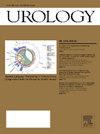Payment Bundles for Prostatectomy: A New Way to Improve Value for Prostate Cancer Care
IF 2
3区 医学
Q2 UROLOGY & NEPHROLOGY
引用次数: 0
Abstract
American healthcare expenditures exceed $4 trillion annually, with prostate cancer (PCa) accounting for $22 billion. Prostatectomy, a common treatment for PCa, incurs significant cost variability. Value-based care (VBC), emphasizing outcomes and efficiency over volume, has emerged as a potential solution. Bundled payment models, such as Medicare’s Comprehensive Care for Joint Replacement (CJR), attempt to align financial incentives with quality but face challenges, including patient variability and misaligned incentives. Building on this, the Transforming Episode Accountability Model (TEAM) introduces longitudinal, episode-based bundles for five predefined surgeries. While urologic surgeries are currently excluded, the evolving landscape presents an opportunity to implement prostatectomy-specific bundles. Urology has piloted condition-specific bundles, such as Vanderbilt University’s kidney stone bundle and the Large Urology Group Practice Association's (LUGPA) active surveillance bundle for PCa. These initiatives align incentives for comprehensive, guideline-based care but have yet to achieve widespread adoption. We propose a novel prostatectomy bundle that incentivizes urologists to optimize surgical outcomes, reduce complications, and enhance postoperative care. By incorporating disease-specific quality metrics and graded payments based on cancer severity, this model addresses critical barriers, including fair physician compensation and equity in access. Urology, uniquely positioned at the intersection of surgery and office-based care, can lead VBC innovation. TEAM’s emphasis on care coordination, equity, and quality offers a promising foundation for refining bundles. With active physician involvement in VBC design, prostatectomy-specific bundles could advance cost, efficiency, and outcomes in PCa care.
前列腺切除术的付费捆绑:提高前列腺癌护理价值的新途径。
美国医疗保健支出每年超过4万亿美元,其中前列腺癌(PCa)占220亿美元。前列腺切除术是前列腺癌的一种常见治疗方法,其费用存在显著差异。基于价值的护理(VBC)强调结果和效率而不是数量,已成为一种潜在的解决方案。捆绑支付模式,如联邦医疗保险的关节置换综合护理(CJR),试图将财政激励与质量挂钩,但面临着挑战,包括患者的差异和不一致的激励。在此基础上,转变事件责任模型(TEAM)为五个预定义的手术引入了纵向的、基于事件的捆绑包。虽然泌尿外科手术目前被排除在外,但不断发展的前景为实施前列腺切除术提供了机会。泌尿外科已经试点了针对特定情况的捆绑治疗,比如范德比尔特大学的肾结石捆绑治疗和大型泌尿外科团体实践协会(LUGPA)的主动监测捆绑治疗。这些举措与基于指南的全面护理的激励措施相一致,但尚未得到广泛采用。我们提出了一个新的前列腺切除术包,激励泌尿科医生优化手术结果,减少并发症,并加强术后护理。通过结合特定疾病的质量指标和基于癌症严重程度的分级支付,该模式解决了关键障碍,包括公平的医生报酬和公平的获取。泌尿外科,独特定位于外科和办公室护理的交叉点,可以引领VBC创新。TEAM对护理协调、公平和质量的强调为改进捆绑包提供了一个有希望的基础。在医生积极参与VBC设计的情况下,前列腺切除术特异性捆绑治疗可以提高前列腺癌治疗的成本、效率和结果。
本文章由计算机程序翻译,如有差异,请以英文原文为准。
求助全文
约1分钟内获得全文
求助全文
来源期刊

Urology
医学-泌尿学与肾脏学
CiteScore
3.30
自引率
9.50%
发文量
716
审稿时长
59 days
期刊介绍:
Urology is a monthly, peer–reviewed journal primarily for urologists, residents, interns, nephrologists, and other specialists interested in urology
The mission of Urology®, the "Gold Journal," is to provide practical, timely, and relevant clinical and basic science information to physicians and researchers practicing the art of urology worldwide. Urology® publishes original articles relating to adult and pediatric clinical urology as well as to clinical and basic science research. Topics in Urology® include pediatrics, surgical oncology, radiology, pathology, erectile dysfunction, infertility, incontinence, transplantation, endourology, andrology, female urology, reconstructive surgery, and medical oncology, as well as relevant basic science issues. Special features include rapid communication of important timely issues, surgeon''s workshops, interesting case reports, surgical techniques, clinical and basic science review articles, guest editorials, letters to the editor, book reviews, and historical articles in urology.
 求助内容:
求助内容: 应助结果提醒方式:
应助结果提醒方式:


